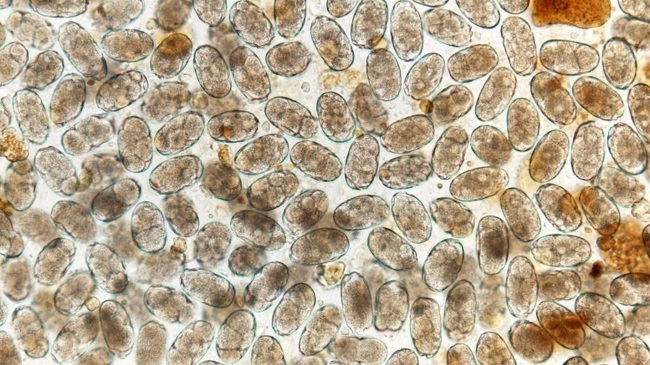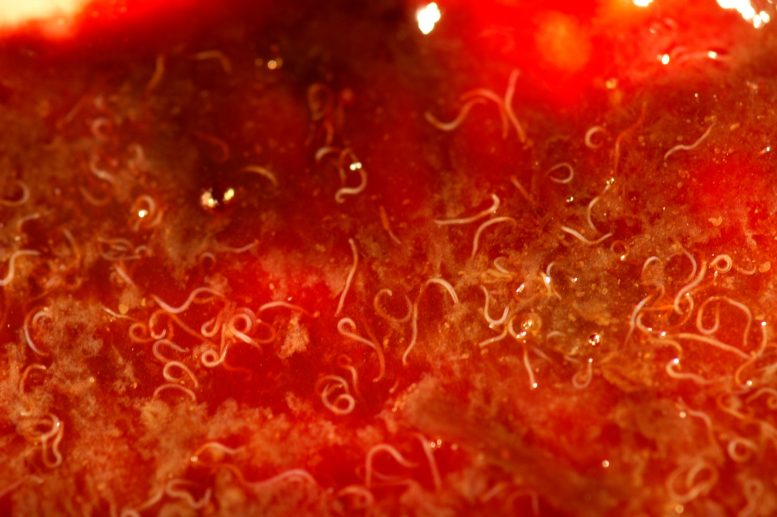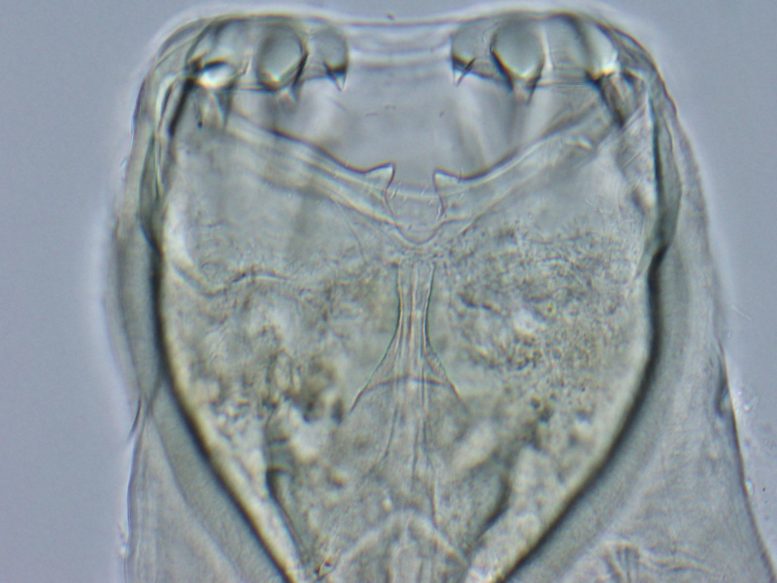According to new research from the University of Georgia, now taking your dogs to a canine park could be risky as hookworms have evolved to resist all FDA-approved treatments used by veterinarians to kill them.
Hookworms are known as one of the most common parasites to affect dogs. The new research from the University of Georgia states that these parasites now show resistance to multi-FDA-approved drugs.
The hookworms are known to grab onto a dog’s intestines with their hook-like teeth and feed on tissue fluids and blood. The canines infected with hookworms show symptoms like significant weight loss, bloody feces, anemia, and lethargy. In some cases, it can also be fatal.
Currently, veterinarians in the United States rely on three types of medications to eradicate hookworms, but the parasites appear to be getting resistant to all of them.
Researchers from the University of Georgia College of Veterinary Medicine first reported this concerning development in 2019, and new research, recently published in the International Journal of Parasitology: Drugs and Drug Resistance, provides deeper insight into where the problem began and how bad it has since become.
For their study, the researchers focused on racing greyhounds. Due to the sandy dirt of the facility, which is an ideal breeding environment for hookworms, dog racetracks are particularly favorable to the parasite’s spread. Due to the circumstances, all of the dogs are dewormed every three to four weeks.
The parasites were shown to be highly prevalent in the breed after the researchers analyzed fecal samples from greyhound adoption kennels, three veterinary practices that interact with adoption groups, and an active racing kennel. Hookworms were found in four out of every five greyhounds tested. The one dog that tested negative could also have hookworms, but they could have been hiding in the tissues. It is known that hookworms can “hide” in tissues, where they will not proliferate or shed eggs until the infection develops and the infection spills into the dog’s intestines.
The concern was that even after the dogs were treated for the hookworms, they still had significant levels of infection.
The Parasites Have Mutated and Evolved
It has been noticed in the research that the parasites had evolved due to unusual mutations allowing them to survive deworming treatments. The researchers believe that if dewormers are continued on a regular basis, the newly mutated resistant worms will live and pass on the mutation to their progeny.
This is the first time that widespread multiple-drug resistance in a dog parasite has been documented anywhere in the world.
To make matters worse, veterinarians seldom test animals after treatment to guarantee the worms are gone, thus drug-resistant worms go unreported until the dog is infected to the point of showing signs of hookworm disease.
Ray Kaplan, a professor of veterinary parasitology at the university stated that he won’t take his dogs to a dog park from now on. He said that if a dog contracts these resistant hookworms, treating them will be extremely difficult as there is no FDA-approved treatment that can work on these mutated parasites.
Almost all of the fecal samples tested positive for the mutation that allows hookworms to survive treatment with benzimidazoles, a broad-spectrum class of dewormers used in both animals and people, according to the researchers.
Although a molecular test for resistance to the other two categories of medications does not yet exist, other sorts of testing by the researchers revealed that the hookworms were also resistant to those drugs.
In the US, the potential breeding habitat for a drug-resistant hookworm outbreak is also a popular area for dog owners to exercise their pets, i.e., Dog Parks.
What are the consequences?
The main concern is that dogs do not need to consume the worms to become sick. Hookworm larvae dwell in the soil and can burrow through the skin and paws of dogs. Female dogs can also pass the parasite on to their puppies via their milk.
One of the major concerns is that dog hookworms can also infect people. However, the symptoms don’t show up in the humans that same way as it does in the dogs. It can start with red, itchy skin like a mosquito bite, and then it can migrate beneath the skin. Humans will be at risk if the number of drug-resistant worms increases.
Kaplan explained that previously doctors used an ointment that contained both a dewormer and a corticosteroid to treat patients. However, it won’t work against drug-resistant hookworms.
Some Hope
In another recent study, Kaplan and Pablo Jimenez Castro, the study’s lead author and a recent doctoral graduate from Kaplan’s lab, discovered that these multi-drug resistant dog hookworms appear to be susceptible to emodepside, a dewormer currently only approved for use in cats in the United States. However, using this cat medicine on dogs should only be done by a veterinarian, as it necessitates veterinary skill and monitoring.
The American Association of Veterinary Parasitologists recently organized a national task group to address the issue of treatment resistance in canine hookworms, in part based on Castro’s findings.
Source: Scitech Daily

 DogExpress
DogExpress





















 in Chandigarh, India.
in Chandigarh, India. 
